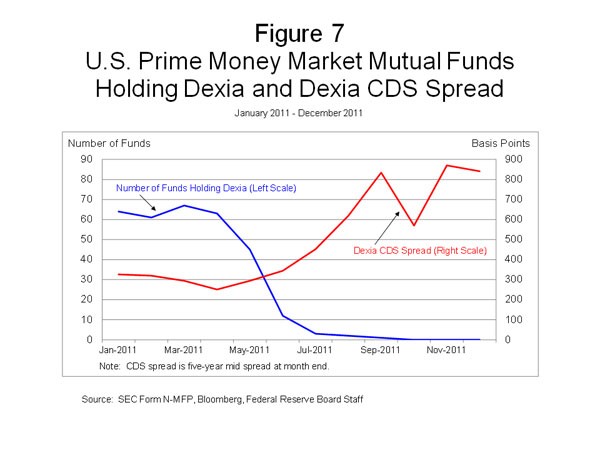Money Market Mutual Funds SEC s New Rules Leave Investors at Risk
Post on: 9 Июнь, 2015 No Comment

IRS Bumps Up Retirement Fund Contribution Limits
The law of unintended consequences often comes into play when regulations get too complex. Take the Securities and Exchange Commissions new rules to reduce the risk of runs on money-market mutual funds.
A money fund is a strange animal. Unlike other mutual funds whose share prices rise and fall along with the value of their assets, a money fund is designed to act like a bank account: Every dollar you put in buys a share, and youre supposed to be able to take out your money at least dollar for dollar no matter what happens in the market. For that reason, money funds typically hold safe, short-term investments.
Still, sometimes losses in a money funds underlying assets make each share worth less than a dollar. When that happens, a sponsor must fork over its own money to prop up the fund (as has happened many times) or it can break the buck and stick investors with a sudden, unexpected loss.
This unique structure gives investors a strong incentive to pull money out at the first sign of trouble. They can get their dollar while imposing even bigger losses on those left behind. (If they stay, they risk others imposing losses on them.) So they run. That happened during the 2008 financial crisis, when a large money fund broke the buck and triggered massive runs that stopped only when taxpayers stepped in with a bailout.
In response, the SEC could have required all money funds to act like other mutual funds and pay out only what their shares were actually worth. Or the agency could have let money funds keep a stable value only if fund sponsors backed it up with their own capital. Instead, faced with intense industry lobbying, the SEC has split the baby. Effective October 2016, money funds used by big institutions will have floating share values. Retail funds can maintain their $1 per share price, but they wont have to commit capital to support the buck. Rather, the SEC decided to discourage runs by letting fund sponsors deny investors access to their money for up to 10 days or charge them a fee of as much as 2% to redeem their shares should assets fall precipitously. (This while the average money fund yields, well, almost nothing.)
To its credit, the SEC also mandated better disclosure, including daily publication of the market value of funds underlying assets. Alas, here comes the law of unintended consequences: Better information also increases the risk of runs because sophisticated holders will bail out before gates or fees are imposed if the value of a funds assets are falling.
So protect yourself, and if you need ready access to your money, keep it in an FDIC-insured bank account or use a good financial website to find a fund investing only in short-term government securities that carry almost zero risk of default. Safety first.
Sheila Bair is former chairman of the Federal Deposit Insurance Corp.














